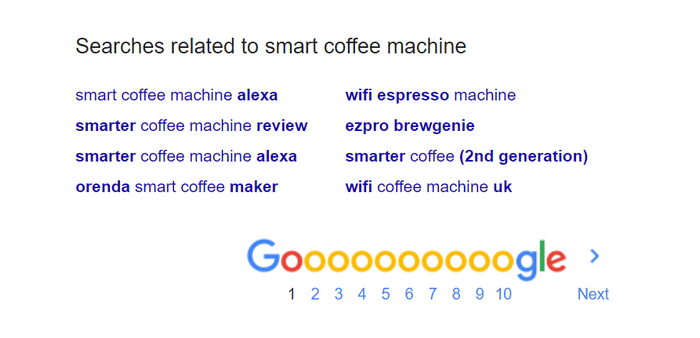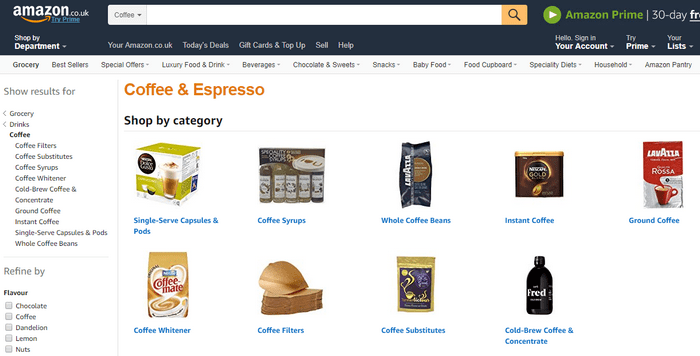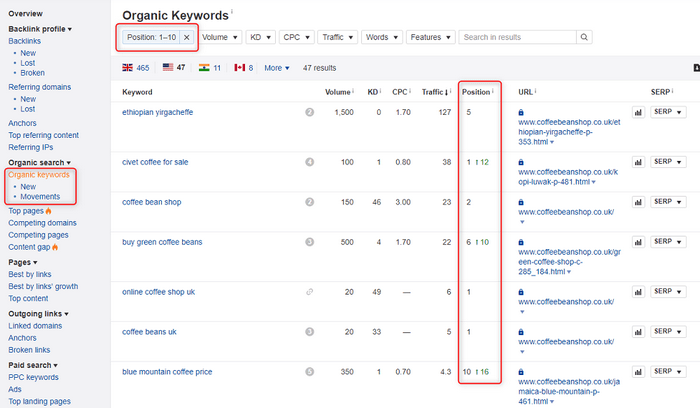Finding the right keywords for a website is a challenge for any website owner. It requires some in-depth analysis of the market, competitors, and the actual keywords for a website. The research for E-commerce websites usually is far more challenging due to intense competition and a high number of product pages to optimize.
The primary goal of this article is to help you come up with a list of keywords that you can use as a base for optimizing your website, its product pages, writing their descriptions and other content.
Understanding what keywords you need
Before jumping right into the research process, you need to understand what kinds of keywords are needed for your pages. Product pages are very specific. Not any keyword you like can be a good fit for it.
You can start with brainstorming how ordinary users may search for your product. Thus, if you are to sell coffee machines, you may start by typing a phrase like ‘smart coffee machine’ into the Google search field and check out the “Related Searches” field below. There you will find some similar searches that real users perform.

It’s important to know how the user’s search for similar products, what words and word combinations they use. Thus, there are thousands of pages for a search term like ‘coffee machine’ that you will compete with. So, you should place a greater focus on more precise, long-tail keywords to narrow the competition.
The studies show that long-tails usually occupy around 40% of all searches. So they should be your top priority during the research. The main question to ask here is ‘Which keyword suggestion displays products that are most similar to yours?’
Start with researching your niche
When starting the keyword research, you should carefully examine your niche and find out what broader keyword categories it has. The right idea here is taking a look at the mega-menus with subcategories that large sellers like Amazon or AliExpress have.

They have an incredibly detailed categorization of the product listings. For example, in the Coffee department you can check out the subcategories such as ‘instant coffee,’ ‘whole coffee beans’ or ‘coffee syrups’ to narrow your search. Check out the product pages you see for those keywords. Try to figure out how the search engines may interpret them to have higher chances to optimize for those keywords.
You can also use Keyword Tool that claims to use the autocomplete feature of Amazon search form to get you more long-tail search ideas for your product pages.
Explore your competitors’ pages
Knowing your competitors is one of the most important tactics you should follow to create your list of keywords with good potential. You just have to find out the keywords that help their product pages rank the highest in searches.
For example, in Ahrefs, you should add the competitor’s page URL into the field, choose the Organic Keywords tab on the left and sort them out by the position they have in Google – from 1 to 10.

Create a list of the best keywords from your competitors, checking their metrics, too. Thus, you have to pay attention to the potential traffic you can get from those keywords. Don’t forget to check out the SERP to see what pages are also rank for those keywords in Google and get more keyword ideas for your pages. Then you will need to create better content – attractive product photos, comprehensive product descriptions and page titles.
Piggyback your competitors
After you create a list of keywords, you can piggyback your competitors in two ways:
- You can intercept their customers on their way to purchase;
- You can offer a better solution to customers using the competitor’s keywords.
1. In the first case, you can target the keywords that people use while searching alternatives of the products offered by your competiters. Those can be the key phrases that include words like ‘better alternative,’ ‘cheaper alternative,’ ‘vs.,’ ‘comparison/compare,’ etc. Your task here is intercepting the potential client on a decision stage when they know what product they would like to buy but still hesitate on the brand decision.
2. When offering a better solution, you should target the keywords that contain ‘how to’ words or similar constructions in your keyphrases. Thus, you may use the phrase ‘how to mount cable’ to pitch your cable ties as the perfect addition to other products.
The methods above will be extremely useful for your PPC campaigns.
Select your keywords
Now, when you’ve got your list of all possible keywords, it’s time to refine it and choose your top priority ones. You will also use those keywords in your blog posts, descriptions and other places to improve your product pages.
- Expand your keyword list with specific keywords that describe your product characteristics like size, color, material, etc.
- Choose the keywords that are relevant to the user’s ‘search intent.’ Try to use as many semantically-related constructions as possible in your product descriptions. But don’t count the number of exact-match keywords you use across the page. Your task is to include them naturally within the context.
- Examine the value of a keyword. It’s not only its search volume or traffic flow or other metrics. Consider what ROI you need from a page with the given keyword: leads and purchases or just clicks and traffic.
The more efforts you put into the content optimization for a particular keyword – the more effect you would like to get in return. So don’t waste your time targeting keywords that you think ‘might work.’ Try and fearlessly discard those that can’t bring you any value.
One day you may wish to target other keywords since the search algorithm is often changing you need to stay up to date. So keyword research should be a regular part of your marketing and SEO routine.

